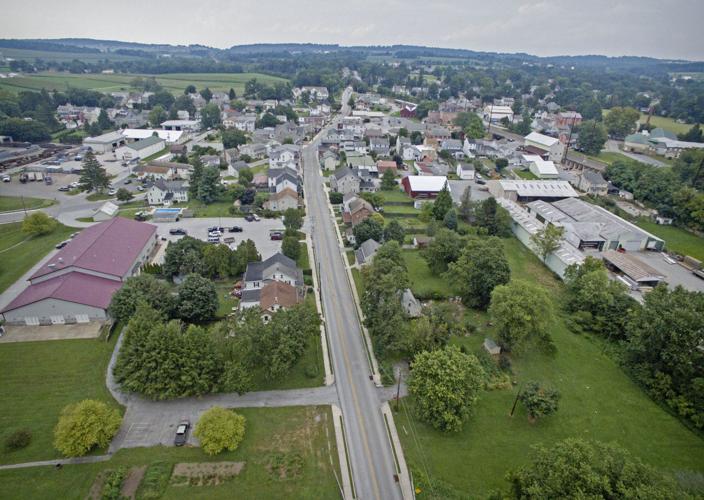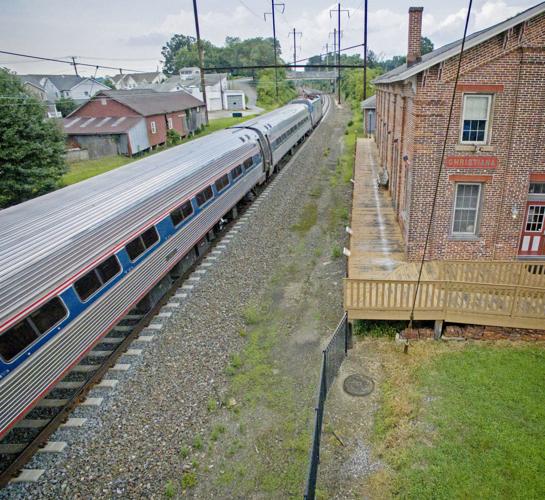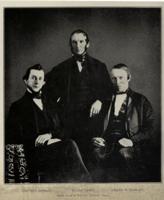With just over 1,100 residents, Christiana is the smallest borough in Lancaster County, hugging the county’s eastern boundary.
While this largely residential town is off the beaten path today, it lays claim to a rich history of industry, technological innovations and a violent defense of escaped slaves that many consider the first conflict of the Civil War.
“It was one of the first stands for freedom,” Darlene Colon, president of the Christiana Historical Society, says of the Christiana Resistance, sometimes called the Christiana Riot.
The initial settlements in the area that would become Christiana began in the 1770s around mills set up along the banks of the north branch of the Octoraro Creek.
When William Noble learned in 1833 that a railroad line from Philadelphia to Columbia would come through the area, he set up a foundry, blacksmith shop and machine shop next to the planned line, opening them all in 1834.
Noble’s businesses thrived near the railroad stop in Christiana and helped spur more activity in the town, while also prompting residents to change its name to Christiana, after his wife.
“The railroad built the town,” says lifelong resident and railroad enthusiast Glenn Kendig, who owns a car wash and a laundry in Christiana. “It was the heart of the town for almost 100 years.”
With several Quaker churches in the area, which is 20 miles north of the Mason-Dixon line, Christiana was also a frequent stop for slaves escaping from the South before the Civil War. Some stayed to work on local farms.
Emboldened by the 1850 Fugitive Slave Act, which legally obligated Northerners to turn over escaped slaves, Maryland farmer and slaveowner Edward Gorsuch came to Christiana in September 1851 to claim several people he considered his property.
Gorsuch was met by an armed resistance; some locals brought guns and others had clubs and farm implements.
Gorsuch was killed in the confrontation Sept. 11, 1851, which led to 38 people — both black and white — being indicted for treason. Among those charged was Colon’s great-great grandfather, Ezekiel Thompson.
All of the accused were eventually acquitted in a trial that drew national attention and heightened the tension over slavery that would lead to the Civil War.
“Christiana symbolizes to me that people came together,” Colon says of the Christiana Resistance. “It wasn’t about race, it wasn’t about religion. They all had one moral cause.”

Library Director Trish Vanderbosh shows a letter from Elizazbeth Pownell to her aunt at Moore Memorial Library in Christiana Thursday, Aug. 15. The Pownells were the landlords of the house where the Christiana Riot occurred.
MORE COVERAGE OF CHRISTIANA:
Key moments in history | People to know | 5 Facts
Places to visit | Things to do
Railroad town, innovations

This Conrail caboose sits outside the Railroad Freight Station, 10 Railroad Ave. in Christiana Thursday, Aug. 15. The caboose was restored by the Lancaster Chapter of National Railway Historical Society.
While the Christiana Resistance cemented Christiana’s importance in the nation’s history, the town’s own particular past continues to impact it.
Amtrak trains still use the rail line along which Christiana developed, and although the trains no longer stop there, the rail line continues to shape how people get around.
The rail line, which has been shifted slightly during its history, runs through the heart of Christiana and can only be crossed at one bridge or two underpasses.
Several longtime residents say some motorists get confused after driving south off Route 41 at the “Welcome to Christiana” sign.
“Where’s the mall?” they ask, mistakenly thinking they’re close to the Christiana Mall near Wilmington, Delaware, and not realizing there’s an actual town called Christiana.
While there may not be a shopping mall, Christiana boasts walkable, tree-lined streets of Victorian homes built during the town’s heyday.
Among the homes along Elizabeth Street is the former residence of Andrew Jackson Melcher, who founded the Christiana Ledger newspaper in 1883 and also brought electricity and phone service to town well before other nearby areas had them.
With the extra steam from his steam-powered printing press, Melcher also sold steam heat to homes near the newspaper office, delivering it by way of underground pipes.
Historic restorations

This sign on Newport Avenue at Sadsbury Avenue in Christiana welcomes those entering the borough.
While Christiana is no longer the hub it was during its heyday as an industrial center around a railroad stop, some key aspects of that history have been restored or are being revitalized.
The historic freight station, which had become an eyesore and was on the brink of needing to be torn down, was bought in 1998 by a local railroad club that restored it and then reopened it in 2000.
And then, in 2006, a small museum commemorating the Christiana Resistance was opened in a room in the former Zercher’s Hotel, which is where the body of Edward Gorsuch was taken after the slaveowner was shot.
Just across the railroad tracks from the museum, another restoration is underway at the circa-1854 Christiana Hotel, where local funeral home owners Steve and Jewell Shivery are working to create guest rooms and a restaurant.
With construction work resuming on that project, there’s a new enthusiasm about the prospect of visitors having somewhere to go after they come to learn about the Christiana Resistance.
“I think we’re poised now to see things progress and move forward,” says Carol Pringle, borough manager and treasurer/secretary.
Yet, because of its size, locals seem to appreciate that Christiana is destined to retain its small-town feel.
“Christiana is probably more status quo than most places. It’s not being overrun by developments, either commercial or residential developments,” Kendig says. “The only red light in this town is in my car wash.”













 CHAD UMBLE | Staff Writer
CHAD UMBLE | Staff Writer














